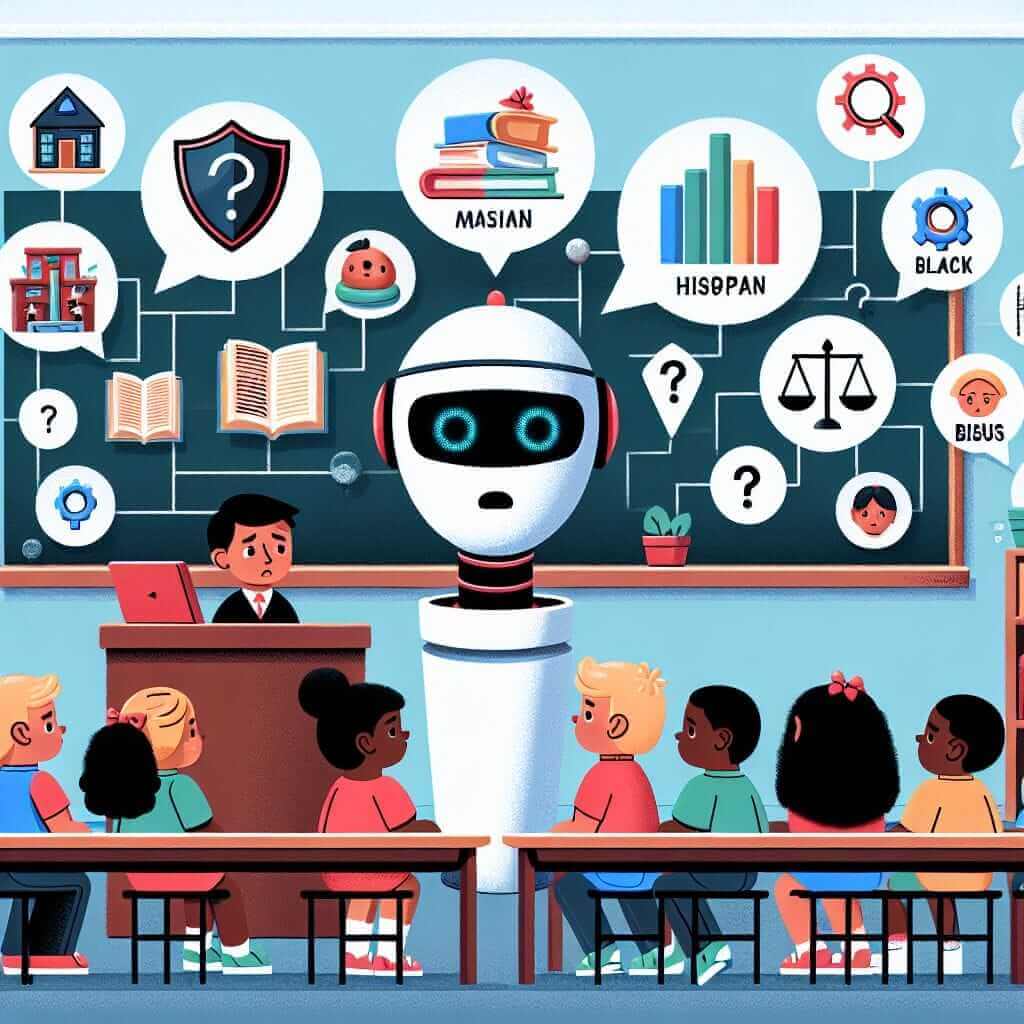The IELTS Reading section can be a daunting task for many test-takers, and choosing the right preparation materials is crucial. One contemporary topic gaining attention is “What are the challenges of implementing AI in personalized education?”. This topic is not only prevalent in academic circles but also in mainstream discussions, making it a probable feature in future IELTS exams. Understanding this topic can help you better prepare for the Reading section, besides being an interesting subject that tests your comprehension and vocabulary skills.
Reading Practice Passage
Below is a full-length IELTS reading sample passage themed around the challenges of implementing AI in personalized education, categorized as a Medium Text, which is commonly encountered in the actual IELTS exams.
Passage Title: The Complexities of Implementing AI in Personalized Education
Artificial Intelligence (AI) has become a ubiquitous term in recent years, influencing a vast array of sectors, including personalized education. While AI holds the promise of revolutionizing education by offering tailored learning experiences, its implementation faces several challenges. Understanding these challenges is essential to harness the full potential of AI in this context.
Data Privacy Concerns
One of the paramount concerns in adopting AI for personalized education is data privacy. Personalized learning systems often require a large amount of personal data to function effectively. This includes students’ academic records, learning preferences, and behavioral data. The handling of such sensitive information raises significant privacy issues. Without robust data protection measures, students’ personal information could be vulnerable to unauthorized access and misuse.
Technological Infrastructure
Another significant hurdle is the technological infrastructure required to support AI systems. Not all educational institutions possess the advanced technological capabilities needed to deploy AI tools effectively. This disparity can lead to a “digital divide,” where students from well-funded institutions reap the benefits of AI-enhanced learning, while those in under-resourced schools fall behind.
Teacher Training and Acceptance
Despite AI’s potential, its success heavily relies on the acceptance and competence of educators. Many teachers may lack the necessary skills to integrate AI tools into their teaching methods. Additionally, there is often resistance to change, particularly when that change involves complex, unfamiliar technology. Comprehensive training programs and continuous professional development are essential to ensure teachers can effectively leverage AI.
Bias and Fairness
AI systems are not immune to bias. If the data used to train these systems is biased, the outcome will also be biased, thereby perpetuating inequalities. For instance, if an AI system is trained on data that predominantly represents one demographic, it may not accurately serve students from diverse backgrounds. Addressing these biases requires meticulous attention to the data sets used and the algorithms’ design to ensure fair and equitable learning outcomes for all students.
Cost and Accessibility
Finally, the cost of developing, implementing, and maintaining AI technologies can be prohibitive. Schools and educational institutions need substantial financial resources to invest in AI-driven personalized learning systems. This financial burden can limit the widespread adoption of such innovative tools, restricting them to a few privileged institutions.
While the challenges are significant, the potential benefits of AI in personalized education are too substantial to ignore. Overcoming these hurdles requires a collaborative effort from educators, policymakers, and tech developers alike, ensuring that AI can deliver on its promise of a more inclusive and effective educational experience.
Questions
Multiple Choice Questions
-
What is one of the main privacy concerns with AI in personalized education?
- A. The cost of AI systems
- B. Data privacy
- C. Teacher training
- D. Technological infrastructure
-
Why might there be a digital divide in AI implementation in schools?
- A. Lack of interest from students
- B. Differences in technological infrastructure
- C. Privacy concerns
- D. Teacher resistance
-
What is a potential result of biased AI systems?
- A. Increased costs
- B. Enhanced learning tools
- C. Inequitable learning outcomes
- D. Resistance from educators
True/False/Not Given Questions
-
Many teachers are eager to adopt AI tools into their teaching.
- A. True
- B. False
- C. Not Given
-
AI technologies are equally accessible to all educational institutions.
- A. True
- B. False
- C. Not Given
-
The financial cost of AI implementation is not a significant barrier.
- A. True
- B. False
- C. Not Given
Answer Keys
Multiple Choice Questions
- B. Data privacy
- B. Differences in technological infrastructure
- C. Inequitable learning outcomes
True/False/Not Given Questions
- B. False
- B. False
- B. False
Lessons Learned
When practicing these types of reading passages, common pitfalls often include skim-reading without proper comprehension and misunderstanding True/False/Not Given questions. Remember to always read the passages thoroughly and understand the context before attempting the questions.
Vocabulary
- Ubiquitous (adj.) /juːˈbɪkwɪtəs/: Present, appearing, or found everywhere.
- Meticulous (adj.) /məˈtɪkjələs/: Showing great attention to detail; very careful and precise.
- Collaborative (adj.) /kəˈlæb(ə)rətɪv/: Produced or conducted by two or more parties working together.
Grammar Focus
Passive Voice
- Formula: be + past participle
- Example: “Data privacy concerns are raised by the implementation of AI.”
Conditionals Type II
- Formula: If + past simple, would + base verb
- Example: “If schools had better technological infrastructure, they would benefit more from AI.”
Tip for IELTS Reading Success
Continuous practice with diverse reading materials can significantly boost your reading skills. Focus on improving your scanning techniques and understanding the author’s purpose. Remember, quality over quantity—practicing effectively matters more than the number of hours spent.

By rigorously engaging with topics like “What are the challenges of implementing AI in personalized education?” and others, you can better prepare yourself for the IELTS Reading section and attain your desired score. Happy studying!